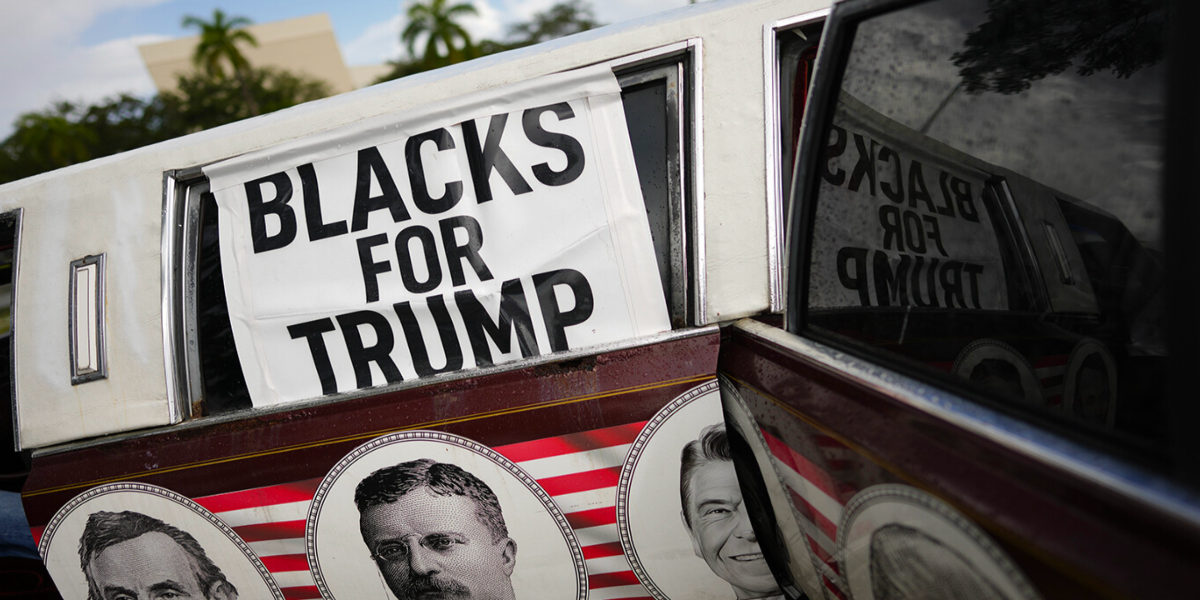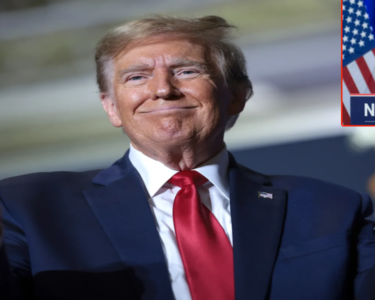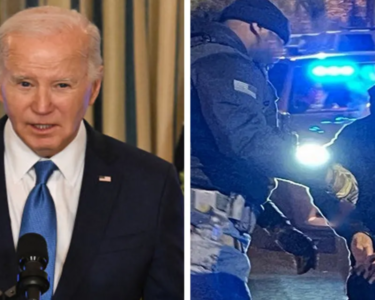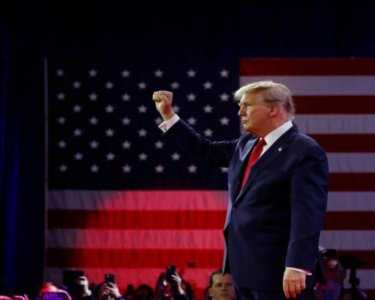In a political landscape where the left has long taken the Black vote for granted, President Trump’s recent remarks are shaking the foundations, raising critical questions about the GOP’s ability to make significant inroads with this key demographic.
Trump’s strategic moves to woo Black men represent a direct challenge to President Biden in what promises to be a fiercely competitive race. His high-profile presence at the Sneaker Con event in Philadelphia and the potential pairing with Sen. Tim Scott (R-S.C.) as a vice-presidential running mate are clear indicators of a targeted campaign strategy aimed at dismantling the Democratic stranglehold on Black voters.
Diante Johnson, president of the Black Conservative Federation (BCF), sees this as a pivotal moment for the GOP. “For too long, the Democratic Party has monopolized the Black vote without any real competition from Republicans. But now, the tide is turning,” Johnson stated. “The GOP is undergoing a transformation, evolving into a party that genuinely embraces inclusivity and represents the diverse voices of America.”
Trump’s administration stands as a testament to this shift, marked by significant achievements for Black Americans, such as securing a decade of funding for HBCUs and boosting homeownership rates. Yet, despite these accomplishments, left-leaning figures like Rep. Steven Horsford (D-Nev.), chair of the Congressional Black Caucus, continue to downplay Trump’s positive impact on the Black community.
Horsford’s claims that the CBC was solely responsible for the funding achievements under Trump’s administration are misleading. The reality is that Trump’s policies have contributed substantially to the advancement of Black Americans, a fact that the left conveniently overlooks.
Trump’s appeal among Black voters, especially Black men, poses a significant threat to the Democratic narrative. The GOP’s multifaceted approach to outreach, including backing Black Republican candidates and committing millions to strategic minority engagement, is starting to bear fruit. The 2022 midterms saw a notable increase in Black support for Republican candidates, debunking the myth that the GOP’s appeal to Black voters is limited.
However, the left and its allied progressive groups remain skeptical of Trump’s outreach efforts. Adrianne Shropshire of BlackPAC is quick to cast Trump and the Republican Party in a negative light, accusing them of harboring white supremacists and eroding the rights of the Black community. These claims, often amplified by the mainstream media, aim to obscure the GOP’s genuine efforts to address the concerns of Black Americans.
Contrary to the left’s narrative, Black voters are increasingly disillusioned with the Democratic Party. Trump’s gains among Black voters in the 2016 and 2020 elections, particularly in crucial battleground states, signal a growing frustration with the left’s empty promises and paternalistic attitudes.
As Trump continues to outperform centrist GOP candidates among Black voters, the left finds itself in a precarious position. The Democratic Party’s reliance on Black voter support to win elections is now being challenged by a Republican strategy that resonates with Black men, who feel alienated by the left’s policies and rhetoric.
The shifting dynamics within the Black electorate suggest that the GOP is making significant progress in breaking the left’s stronghold. Trump’s success in garnering Black support is not just a political calculation; it’s a clear indication that the traditional political allegiances are evolving. With this changing landscape, the Black vote is emerging as a true battleground in future elections, demonstrating that the GOP’s efforts to expand its base are not only necessary but increasingly effective.




